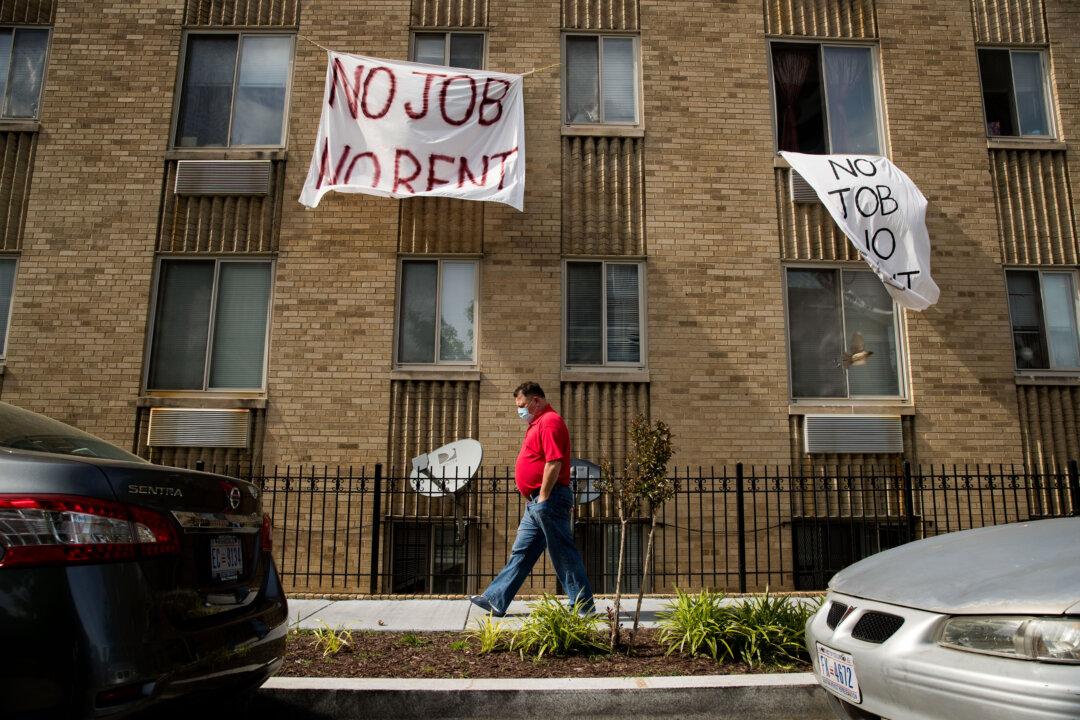An estimated 1.95 million U.S. renter households owed more than $15.3 billion in back rent when the federal eviction moratorium expired on July 31, according to a new report.
The number of renter households in debt is expected to reach 2 million by December, the Federal Reserve Bank of Philadelphia said in the July 30 report (pdf). Those households are expected to collectively owe $18.6 billion by that point, with an average debt of $9,300.





